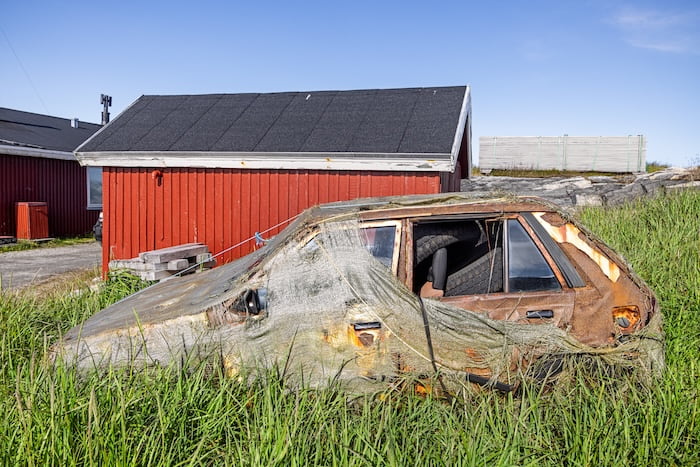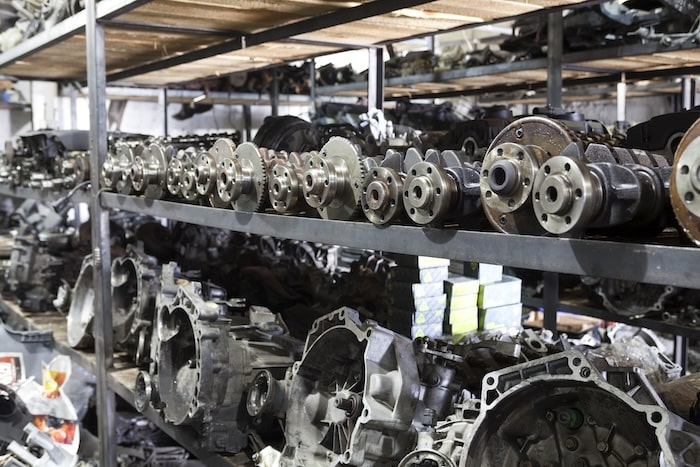Is It Worth It? The Benefits of Selling a Car as Scrap Explained
Have you been staring at an aging, non-functional vehicle taking up space in your garage or driveway? If so, you’re not alone—and you’re likely wondering whether selling a car as scrap is worth it.
The answer is yes, and not just because of the potential cash you can earn. Scrapping your old vehicle offers several practical, financial, and environmental benefits that you may be overlooking.
In this blog, we'll walk you through the real advantages of selling a car as scrap, how the process works, and what you can expect in terms of valuation. If you’re still on the fence, you can learn about why more people in Canada are choosing this route over traditional sales or trade-ins.
Why Do People Sell Their Cars as Scrap?
Your car may be on the verge of, or may have already reached, the end of its effective lifespan for various reasons. Maybe it’s too costly to repair it, especially if repairs outweigh the vehicle’s value. Perhaps the engine has failed, or the car no longer meets emission standards.
In some cases, it's simply not worth the trouble to sell an outdated car, whether it's on the private market or at a dealership.
Instead of leaving that vehicle to rust and depreciate even further, selling it to a scrapyard or authorized recycler provides a quicker and more purposeful resolution.
A scrap car is more than just metal—it contains valuable materials and parts that can be salvaged, recycled, or reused. By going through the scrapping process, you're not only recovering some of your investment, but you're also contributing to a more sustainable and circular economy.
Learn more about the importance of scrap metal recycling and a circular economy
5 Benefits of Selling a Car as Scrap
1. Financial Returns Without the Hassle
One of the most appealing aspects of selling a car as scrap is the immediate financial return.
While your vehicle might not fetch much on the private market, scrap buyers calculate value differently. They typically do this by the weight of the car and the current price of valuable metals, such as steel, aluminum, and copper.
Additionally, certain parts of your car may carry extra value. Catalytic converters, for example, are often the most valuable scrap component in a vehicle due to the precious metals they contain.
Other components that can boost your scrap car valuation include:
- Aluminum wheels
- Radiators
- Batteries
- Engines and transmissions
- Copper wiring and harnesses
The process of recycling your old car at a scrapyard is often quick. Many services offer a quote within minutes. And if you’re not dropping it off, some businesses will provide same-day pickup and payment. There’s no advertising, no negotiations, and no paperwork headaches.

2. Environmental Impact: Why Scrapping Is the Responsible Choice
You may not realize this, but that old, rusting vehicle collecting dust on your property can become an environmental liability.
Older, unused vehicles can leak fluids like oil, coolant, or brake fluid. If this happens, the soil or groundwater on your property could become contaminated. In contrast, reputable scrap facilities are equipped to handle hazardous materials responsibly.
When you choose to sell your car to a certified recycler, the process typically involves the following:
- Draining and safely disposing of all fluids
- Dismantling usable parts to be sold as scrap car spares
- Recycling all metal components
- Shredding and processing materials for reuse in new manufacturing
By deciding to recycle your old car, you can help significantly reduce the demand for mining and raw material extraction (which is better for the environment).
Selling a car as scrap helps support the circular economy and minimizes landfill waste—a far better alternative than leaving your vehicle to deteriorate in a driveway or junkyard.
3. Regain Valuable Space on Your Property
A broken-down car isn’t just an eyesore; it’s wasted space. Whether it's blocking a parking spot, occupying space in your garage, or sitting behind your business, an unused vehicle can become a daily nuisance.
Scrapping your car allows you to free up parking or storage areas and maintain better curb appeal for your home or property. You’ll also avoid municipal fines or bylaw violations for vehicle abandonment.
If your car isn’t drivable, many buyers will offer complimentary towing, removing it from your property without extra cost. That’s one less thing to worry about, especially if the vehicle has been immobile for a long time.

4. No Repairs, No Paperwork, No Stress
Unlike trade-ins or private sales, selling a car as scrap doesn’t require a functional vehicle, current registration, or a valid emissions test. It’s one of the few ways you can sell a vehicle “as-is” with little to no preparation.
The only things that you’ll typically need to provide when selling your car as scrap are:
- Proof of ownership (vehicle registration)
- A government-issued ID
Remember that you also need to remove any remaining personal items and the license plates.
The buyer often handles the paperwork related to deregistering the vehicle. This makes scrapping an ideal choice if your vehicle is beyond repair or has failed recent inspections.
5. No Need to Worry About Market Conditions
Selling a car privately can be heavily influenced by timing, demand, seasonality, and economic shifts. For instance, if you try to sell a gas-guzzler during a gas price spike or an outdated model during a market saturated with newer vehicles, you’ll find it challenging and frustrating.
In comparison, scrap car valuation is steadier, based on factors like weight, material value, and salvageable components. This approach provides a less fluctuating and more reliable means of securing fair compensation for your vehicle, regardless of its make, mileage, or present market demand.

Richmond Steel Makes Selling Your Car as Scrap a Simple, Transparent Process
With over 50 years of experience in recycling, we understand that you want a fast, simple, and trustworthy process when you come to sell your scrap car. In our locations across Alberta and British Columbia, we make sure our processes are standardized to make your life easier.
Here’s what to expect the process to look like when you drop off your car:
- Drive In for a Scrap Car Valuation: You provide your car’s make, model, year, and condition. Based on weight, part value, and market demand, you’ll receive a competitive quote.
- Transfer Ownership and Get Paid: Sign over ownership and receive payment via cash or cheque.
- Receive Confirmation of Recycling: As a licensed recycler, we hand you a certificate of destruction for your records.
Our entire process is designed to be quick, convenient, and safe.
How Much Is a Scrap Car Worth in Canada?
The value of a scrap car varies based on location, vehicle size, and fluctuating metal prices. On average, Canadian car owners can expect anywhere from $100 to $600 for their vehicle, though the final amount can go higher if the car contains parts in demand.
Understanding what is the most valuable scrap on a car—like catalytic converters and engines—can help you estimate a fair price or even negotiate a better offer. If you’re unsure, a quick call to a local recycler or inquiring about an online quote can give you a starting point based on your vehicle's make and condition.
Reap the Benefits of Scrapping Your Car
Selling a car as scrap isn’t just about getting rid of an unwanted car; it’s about making an informed, responsible decision that benefits your wallet, your property, and the environment.
Whether your vehicle is damaged, outdated, or simply no longer useful, the scrap process provides a clear and convenient way to get the most from your outdated car.
If you’re considering selling your car as scrap, the team at Richmond Steel Recycling is ready to help. With multiple locations across Western Canada, we make the process simple, transparent, and efficient—from instant quotes to environmentally responsible recycling.
Visit one of Richmond Steel Recycling's locations to get started today—and turn your unwanted vehicle into real value.
